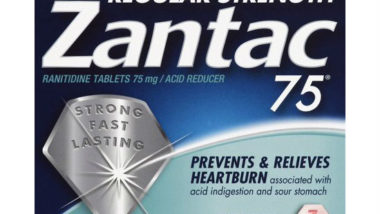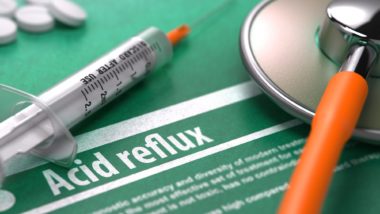 Those using heartburn medication over the long-term might already know about the risk of PPI and kidney disease, but reports continue to show that other side effects might influence health as well.
Those using heartburn medication over the long-term might already know about the risk of PPI and kidney disease, but reports continue to show that other side effects might influence health as well.
There are millions of people who turn to PPI medications to help with chronic heartburn, but these acid reflux drugs are not meant to be taken for an extended period of time. Prolonged use of these drugs has been tied to medical issues, including kidney disease.
A recent study from the Washington University School of Medicine in St. Louis identified a connection between these acid reflux medications, also known as PPI drugs, and other health-related symptoms and side effects. Along with the increased risk between usage of a PPI and kidney disease, other connections were found with upper gastrointestinal cancer, chronic kidney disease, and fatal cases of cardiovascular disease.
Even if the medication is taken at low doses, according to the research study, a patient’s risk for developing problems can be severe if the drug is used longer than the short term. In total, more than 15 million people have received prescriptions for PPIs and many others buy over-the-counter versions to treat symptoms like ulcers or heartburn. This may mean that a large number of people are at risk for PPI and kidney disease, along with other complications.
While these drugs can be very effective for targeting short-term issues and helping overcome a heartburn issue, they are not intended to be taken over the course of months of years. Many patients take the drugs this way, however, without realizing the potential for serious health problems.
Research on PPIs has increased as more patients report side effects and problems they did not expect when taking medicines such as Nexium. Prior research has connected PPI usage to heart disease, dementia, bone fractures, and even pneumonia. Even though there is strong research connecting all these concerns, consumers continue to use PPI drugs in high numbers.
Other drugs in the PPI class include Prilosec, Protonix, and Prevacid.
The St. Louis study involved an analysis of over 157,000 medical records from July 2002 to June 2004 for patients who were prescribed PPIs. In addition, the medical records for an additional 56,000 patients who had been given H2 blockers, a different acid drug, were also used.
Researchers found that among the group taking PPIs, which were mostly men, there was a 17 percent higher risk of death when compared with the H2 blocker group.
Some who take these medications might assume that the over-the- counter versions carry less risk. However, the study found that more than 80 percent of the records they looked at were people using low doses of PPI drugs, such as those that make up over-the-counter versions.
ATTORNEY ADVERTISING
Top Class Actions is a Proud Member of the American Bar Association
LEGAL INFORMATION IS NOT LEGAL ADVICE
Top Class Actions Legal Statement
©2008 – 2026 Top Class Actions® LLC
Various Trademarks held by their respective owners
This website is not intended for viewing or usage by European Union citizens.
E-mail any problems with this form to:
[email protected].
Oops! We could not locate your form.












